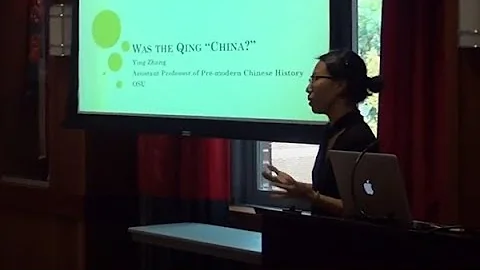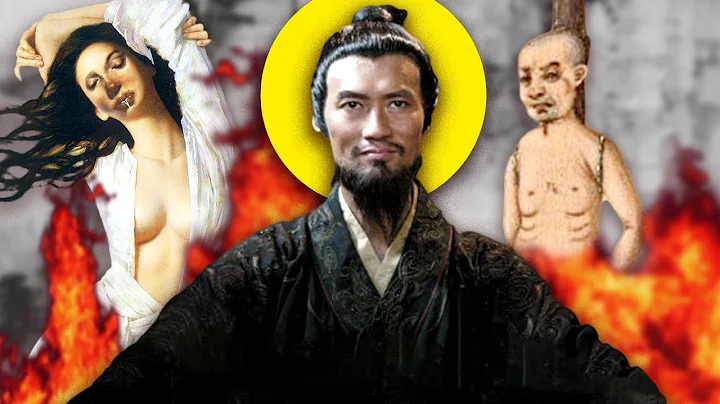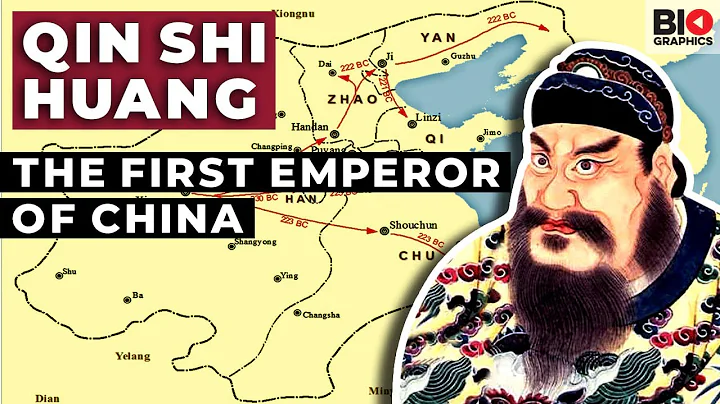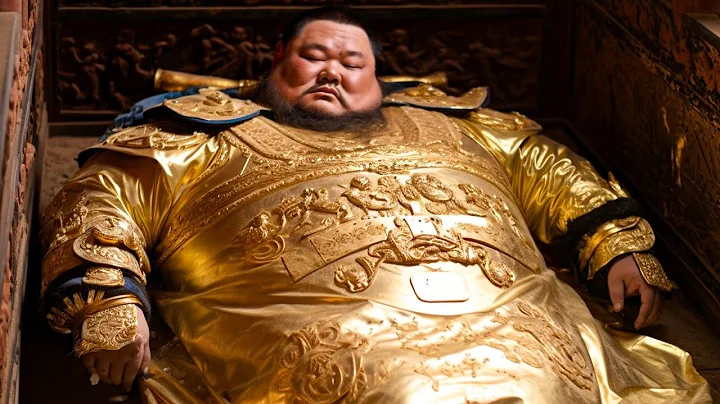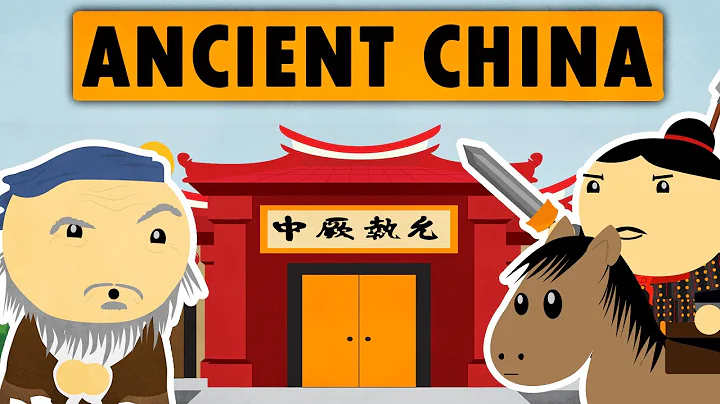In 1973, the 92-year-old Zhang Shizhao invited himself to Hong Kong for the fourth time, hoping to discuss the cause of cross-strait reunification with Taiwan, but he died before his success was accomplished. In Hong Kong Chiang Kai-shek the "public opinion representative" of Chiang Kai-shek's puppet regime, Song Yishan, attended the memorial service of Zhang Shizhao. This behavior was only natural, but Chiang Kai-shek was furious and announced the dismissal of Song Yishan as the public opinion representative on the charge of "affiliating the Communist Party".
How could a "public opinion representative" who has been living in Hong Kong attend the memorial service of a respected revolutionary old man make Chiang Kai-shek so angry? This starts from a "peace talks" mission 16 years ago.

Song Yishan
Chairman Mao extended an olive branch
In April 1955, Premier Zhou led a Chinese government delegation to attend the Asian-African Conference held in Bandung, Indonesia. Before leaving, Chairman Mao asked Premier Zhou to take the opportunity to raise the possibility and intention of peacefully liberating Taiwan on the premise that the United States withdraws its armed forces in the Taiwan Strait.
htmlOn April 27, when Chairman Mao met with the ambassador of Pakistan , he said: "During the Asian-African Conference, we discussed the Taiwan issue with five Colombo countries, Thailand, Philippines , and all issues should be resolved through negotiations. The way to fight a war is not good. "
In 1956, the Chinese Communist Party's policy on the peaceful liberation of Taiwan was further developed, and the concept of the third cooperation between the Kuomintang and the Communist Party was formed. On January 25, 1956, Chairman Mao delivered a speech at the Sixth Supreme State Council and pointed out: "There are still a lot of people in Taiwan. If they stand on a patriotic stance and are willing to come, no matter whether they are individual or partial No matter whether it is collective or collective, we all welcome them and strive for our common goal.”
In 1956, Chairman Mao, Premier Zhou, Liu Shaoqi and other national leaders released peaceful policies on the Taiwan authorities on many occasions. bona fide. When Chairman Mao met the French Communist Party delegation, he said: " The Kuomintang is now occupying Taiwan. We have proposed cooperation again and have cooperated twice. Why can't we cooperate a third time! " He also said on the spot that if Taiwan returns to the motherland, everything can be done As usual, Taiwan can now realize the Three People's Principles and can trade with the mainland, but do not send spies to sabotage them, and we will not send "red spies" to sabotage them. Once negotiated, an agreement can be signed and announced.
When Premier Zhou visited India, he admitted that the Chinese government was working hard to win over Chiang Kai-shek. If Taiwan returned to the embrace of the motherland, Chiang Kai-shek would have made a contribution and he could stay anywhere in China according to his wishes.
When a reporter asked whether the CCP would give Chiang Kai-shek a ministerial position, Zhou Enlai smiled and replied: "The minister is too low."
In the spring of 1956, Zhang Shizhao, who was running between Beijing and Hong Kong, and spared no effort to achieve the reunification of the motherland, made the request. , can you write a letter to Chiang Kai-shek? After careful consideration, Chairman Mao and Premier Zhou agreed to write a letter to Chiang Kai-shek in the name of the Central Committee of the Communist Party of China.
The letter put forward some principled opinions on the third cooperation between the Kuomintang and the Communist Party: first, in addition to the central government's control of diplomacy, Taiwan's personnel arrangements, military power, etc. are still managed by Chiang Kai-shek; second, if Taiwan's economic construction funds are insufficient, the central government The government can allocate funds for subsidies; third, Taiwan’s social reform should be slowed down until conditions are mature, and Chiang Kai-shek’s opinions should be respected and representatives of the people from all walks of life in Taiwan negotiated; fourth, the Kuomintang and the Communist Party must ensure not to do anything that undermines the other, so as to facilitate the re-establishment of the two parties. cooperate.
The letter also stated that Chiang’s tomb in Fenghua did not “disappear in the campaign to suppress counter-revolution and land reform” as some Hong Kong and Taiwan newspapers said, but “the tomb in Fenghua is still there, Xikou The flowers and plants of are all intact. Chiang Kai-shek is welcome to return to his hometown after the reunification of the motherland."
After receiving the letter, Zhang Shizhao, 75, immediately rushed to Hong Kong and found the Kuomintang stationed in Hong Kong responsible for cultural propaganda and presiding over the "Hong Kong Times". Xu Xiaoyan discussed with him the principles and policies of the Central Committee of the Communist Party of China on the peaceful liberation of Taiwan, and asked him to forward the letter from the Central Committee of the Communist Party of China to Chiang Kai-shek.

Xu Xiaoyan
Xu Xiaoyan knew that the matter was of great importance, and immediately flew from Hong Kong to Taipei, went directly to the Presidential Palace, personally handed the letter to Chiang Kai-shek, and gave Chiang a detailed report on his talks with Zhang Shizhao. After Chiang Kai-shek heard this, he opened the letter again and read it several times. He noticed that the letter no longer called him the "number one war criminal" and did not ask him to "surrender." He thought that in recent times, Zhou Enlai had repeatedly mentioned in public "striving to liberate Taiwan through peaceful means" and called for "the third cooperation between the Kuomintang and the Communist Party." He knew he had to face up to the situation.
Based on this, Chiang Kai-shek recalled Xu Xiaoyan to Taiwan in early 1957 and asked him to find a candidate and go to Beijing. Chiang Kai-shek required that this person must have a certain status and reputation, but he could not be sent from Taiwan. Song Yishan was the candidate who was finally selected.
Why is Song Yishan?
Song Yishan is a native of Xiangxiang County (now Shuangfeng County) of Hunan Province. He graduated from the Nanjing Central Military Academy in his early years and was a student of Chiang Kai-shek. I worked in the department and followed Chiang Kai-shek for more than 20 years and was trusted. When the Kuomintang retreated to Taiwan from Nanjing, he served as the personnel director of the Central Organization Department of the Kuomintang. After arriving in Taiwan, he served as the "public opinion representative" of the Kuomintang puppet regime and an alternate member of the Kuomintang Central Committee, and worked in Hong Kong.
Such a resume meets Chiang Kai-shek's requirements - he has status and fame, and is not in Taiwan. More importantly, Chiang Kai-shek can trust this person.
In addition, Song Yishan also has another identity, that is, Song Xilian 's brother.
Song Xilian entered the first phase of Huangpu Military Academy at the age of 17 and became a student of Chiang Kai-shek. In 1933, he served as the commander of the 36th Division of the Kuomintang and participated in the "encirclement and suppression" of the Chinese Red Army. In 1937, he was appointed as the commander of Xi'an garrison. Since then, he has successively served as commander of the 71st Army, commander-in-chief of the 11th Group Army of the Chinese Expeditionary Force, commander of the Xinjiang Garrison, and commander of the "Suppression of Bandits" in Central China.

Song Xilian
In early 1947, when the southwest was in serious trouble, Chiang Kai-shek appointed Song Xilian as director of the Sichuan-Hunan-Hubei Appeasement Agency and commander of the 14th Corps. Chiang Kai-shek was defeated like a mountain. In November 1949, Song Xilian still had tens of thousands of soldiers and horses, and he was retreating in panic. Song Xilian himself was captured in a small temple on the north bank of the Dadu River on November 19. The scene after Song Xilian was captured was quite interesting. A leader of the People's Liberation Army came to see him. When he called him "commander," the other party shook his head; when he called him "commander," he also shook his head. It turned out that the man's name was Yin Fatang, and he was a regiment leader, which surprised Song Xilian! Because in his mind, the People's Liberation Army's pursuers are at least several armies. The scene at that time was as follows:
Seeing Song Xilian’s misunderstanding and doubts, Commander Yin quickly shook his head and said with a smile: "I am not the army commander, nor the division commander. I am the commander of the 155th Regiment of the 52nd Division. The leader of the pursuit along the Dadu River There is only one regiment in the army. To be precise, it only has 800 troops, which is only equivalent to a reinforced battalion." When Song Xilian heard that there was only one regiment chasing him behind, and it only had 800 troops, he said, "Oh. "The commander sighed, sat on the chair regretfully, and murmured to himself: "I always thought that there were several armies chasing me from behind. There was intelligence that it was nine armies. If I had known this, there would be three regiments and five regiments. A regiment, I also have the strength..."
At that time, Song Xilian, Du Yuming and other war criminals were imprisoned in the Gongdelin War Criminals Management Center in Beijing. Chiang Kai-shek believed that Song Yishan could go to the mainland as a relative visitor.
Another point is that Chiang Kai-shek believed that Song Yishan was from Hunan, Chairman Mao, Liu Shaoqi, Li Weihan, Minister of the United Front Work Department of the Communist Party of China, and Zhang Shizhao, who had been communicating between the two sides for a long time, were all from Hunan, and it was easier for fellow villagers to talk to each other.
Song Yishan's mission was fruitless. Chiang Kai-shek scolded "Mother Xipi"
In early April 1957, Song Yishan entered the country from Hong Kong and arrived in Beijing by train via Guangzhou. The person who received him was Tang Shengming, who was also a Hunanese.Tang Shengming served as an aide-de-camp to Chiang Kai-shek as early as 1928. After the victory of the Anti-Japanese War, he served as a Lieutenant General Design Committee member of the Military Command Bureau of the Nationalist Government. In early 1949, he served as a member of the Military Affairs Office of the Presidential Palace and deputy commander of the First Corps of the Kuomintang. In August of that year, he led an uprising in Hunan. After the founding of New China, he served as deputy commander of the 21st Corps of the People's Liberation Army. From 1956, Tang Shengming served as counselor of the State Council.
Under Tang Shengming's arrangement, Premier Zhou met with Song Yishan on the third day after arriving in Beijing and hosted a banquet with him at the famous Beijing hotel Dongxing Building . This shows that the CCP attaches great importance to Chiang Kai-shek's envoy. Premier Zhou talked about Song Xilian, Song Yishan's younger brother, saying that Song Xilian was a famous anti-Japanese general and asked Song Yishan to go and see his brother. This moved Song Yishan deeply.

Premier Zhou and Song Yishan
Premier Zhou also interviewed Song Yishan about the relevant principles for peacefully resolving the Taiwan issue. Specific issues will be discussed with him by Li Weihan, Minister of the United Front Work Department of the Communist Party of China.
Subsequently, Li Weihan, as a representative of the Communist Party of China, negotiated with Song Yishan on some specific issues regarding the third cooperation between the Kuomintang and the Communist Party and the reunification of the motherland.
Li Weihan proposed four specific conditions for the CCP's cooperation between the Kuomintang and the Communist Party:
 . The Kuomintang and the Communist Party can achieve peaceful reunification through reciprocal negotiations.
. The Kuomintang and the Communist Party can achieve peaceful reunification through reciprocal negotiations.
 . Taiwan can be regarded as an autonomous region under the central government and enjoy a high degree of autonomy.
. Taiwan can be regarded as an autonomous region under the central government and enjoy a high degree of autonomy.
 . The political power in Taiwan is still under the leadership of Chiang Kai-shek. The CCP will not send people to participate, but the Kuomintang can send people to Beijing to participate in the leadership of the central government.
. The political power in Taiwan is still under the leadership of Chiang Kai-shek. The CCP will not send people to participate, but the Kuomintang can send people to Beijing to participate in the leadership of the central government.
 . Foreign troops stationed in the Taiwan Strait must be completely withdrawn, and foreign forces must not be allowed to interfere in China's internal affairs.
. Foreign troops stationed in the Taiwan Strait must be completely withdrawn, and foreign forces must not be allowed to interfere in China's internal affairs.
Such conditions can be said to be relatively superior. It is basically the later " one country, two systems " model. Song Yishan felt the deep goodwill during the meeting and was greatly moved.
In addition to the talks, Song Yishan, accompanied by Tang Shengming, visited Beijing. The destinations to visit are not only scenic spots and historic sites such as the Forbidden City and the Great Wall, but also the achievements of socialist economic construction such as the Shijingshan Iron and Steel Plant and the Sijiqing Advanced Agricultural Production Cooperative.
At that time, China was undergoing large-scale socialist economic construction and advocated "letting a hundred flowers bloom and a hundred schools of thought contend". Wherever Song Yishan went, there was a steaming and prosperous scene. Such a situation may not be a big deal to us today, but for Song Yishan, who was born in the early 20th century, what he saw during his growth were invasions by foreign powers, warlords' melee, and the decline of people's livelihood. Mountains and rivers are broken. A stable and prosperous China only appeared in their dreams, and was beyond the reach of the decadent Chiang Kai-shek government. This shocked Song Yishan, which also inspired the patriotic enthusiasm he had when he was young.
More importantly, Song Yishan went to Beijing Gongdelin War Criminals Management Center to visit his younger brother Song Xilian and learned that Song Xilian was living a good life in prison and would be pardoned soon. This shocked him even more. In the Kuomintang's propaganda, the captured war criminals were living in dire straits and miserable life. In fact, the reason why such lies are popular within the Kuomintang's rule is that as long as the Kuomintang people ask themselves what they will do if they catch Communists, they can't help but disbelieve them.

Song Xilian (middle) in his later years
But what Song Yishan saw made him unable to help but believe that the policy of preferential treatment of war criminals propagated by the Communist Party was all true. Especially someone like Song Xilian, who was loyal to Chiang Kai-shek in the past, is now actively participating in the transformation, and has a very profound understanding from the depths of his mind. This further convinced Song Yishan that the central government sincerely wanted peace, and their commitments to the Taiwan authorities and Chiang Kai-shek could certainly be guaranteed.
Two weeks later, Song Yishan quietly returned to Hong Kong.
Based on the impressions of this trip to the mainland, Song Yishan wrote a written report and gave it to Xu Xiaoyan to forward to Chiang Kai-shek.In this report of more than 15,000 words, Song Yishan not only described in detail the meetings and discussions with Zhou Enlai and Li Weihan as well as the CCP’s proposals, but also deliberately described what he saw and heard along the way and in Beijing, including the prospect of a good harvest in the countryside. , industrial production is booming and the market is well supplied.
Finally, Song Yishan made a bold statement: The CCP’s intentions are sincere and should be responded to. In mainland China, from factories to rural areas, everywhere we go, we can see that the government is harmonious and people are harmonious, all industries are prospering, and the people live and work in peace and contentment, and are interdependent with the CCP. The previous premise of "counterattack and restoration of the country" seems to be hopeless.
After the report was sent, Chiang Kai-shek became more and more angry. Before he finished reading, he slammed down on the table and cursed: "Mother Xipi! He spoke so well of the Communist Party, and it was reduced to red in half a month."
Chiang Kai-shek immediately ordered people to tell Song Yishan that there was no need Forget about returning to Taiwan and staying in Hong Kong. In the future, the salary of the "public opinion representative" will be sent on time.
Song Yishan was not the first emissary to be "abandoned" by Chiang Kai-shek.
As early as 1950, Chiang Kai-shek asked Chiang Ching-kuo to come forward and send Li Cibai, a sixth-generation student of Huangpu and Chen Yi's brother Chen Mengxi's brother-in-law, to the mainland. At that time, the Chiang Kai-shek regime was facing being abandoned by the United States, and the 500,000-strong army led by Su Yu led troops to the southeast and prepared to cross the sea to liberate Taiwan. Chiang Kai-shek and his son were trembling with fear. They wanted to seek peace but still worried about the gains and losses. They dreamed of "the path of multi-party democracy in the United States."
Chen Yi entertained Li Cibai in Shanghai, but said to him: "Let's not mention the issue of cooperation between the Kuomintang and the Communist Party now. It is too early to mention it. There will be opportunities in the future. I welcome Cibai back and treat you to dinner. As for Taiwan, let it rot!"
Not long after, the Korean War broke out. The U.S. imperialists not only sent troops to invade North Korea, but also sent the Seventh Fleet and the Thirteenth Air Force to invade Taiwan. Chiang Kai-shek and his son believed that with a backer, there was no need for "peace talks." Chiang Ching-kuo had someone inform Li Cibai, "There is no need to talk about the cooperation between the Kuomintang and the Communist Party." Then, Li Cibai could not return to Taiwan, and his family members in Taiwan could not receive the living expenses promised by Chiang Ching-kuo.

In 1982, his son Li Wengu (left) went to Hong Kong to meet his father Li Cibai (right)
Compared with Li Cibai, Song Yishan is considered "lucky". At least he has no family members in Taiwan, and he can also receive a salary. But he still has a large family to support, so he applied to teach economics at a university and worked hard to raise eight children. But after 1973, that salary stopped. Fortunately, the children had grown up and the family's life had improved.
Song Xilian received amnesty in 1959. In 1980, at the repeated request of his children, he and his wife went to live in the United States. Before going to the United States to visit relatives, Song Xilian first went to Hong Kong to visit her third brother Song Yishan, who had been separated for many years. Song Yishan, who was 75 years old at the time, was very excited to reunite with his brother after a long absence.
When Song Xilian arrived in Hong Kong, his financial situation was very tight. Song Yishan's son-in-law Fang Zigang paid for his suit, and it was Song Yishan who paid for the air tickets for Song Xilian and his wife Yi Yin to go to the United States.
In the United States, Song Xilian contacted a group of Huangpu alumni and actively worked for the peaceful reunification of the two sides of the Taiwan Strait. For this reason, he was wantonly attacked by Taiwan. At this time, Song Yishan's body was getting weaker and weaker, and he no longer had the energy and energy that he had when he went north alone. In 1983, Song Yishan suffered a stroke, and his health became worse year by year. In his last days, he followed his wife and converted to Christianity. In 1991, Song Yishan died of illness in Hong Kong at the age of 86.
Song Yishan has always remained silent about his secret trip north in 1957 to serve as Chiang Kai-shek's "peace talks" messenger. Li Xiaomei, his stepdaughter who took care of him in his later years, said that Song Yishan was very loyal to Chiang Kai-shek and that being "abandoned" by Chiang was a huge blow to him.

Song Yishan family photos
References
"Chronicle of the Peace Talks between the Kuomintang and the Communist Party after 1950", Liang Fuchang, Party History Wenhui
"Behind the scenes of the abortion of the "third Kuomintang and Communist Party cooperation"", Wang Lefei, red wide angle
"Mao Zedong and Chiang Kai-shek", Ye Yonglie , Huaxia Publishing House
"The Past of Cross-Strait Secret Envoys: Song Yishan", Phoenix TV, Recording the Great Era
"General Eagle and Dog: Autobiography of Song Xilian", Song Xilian, China Literature and History Publishing House
